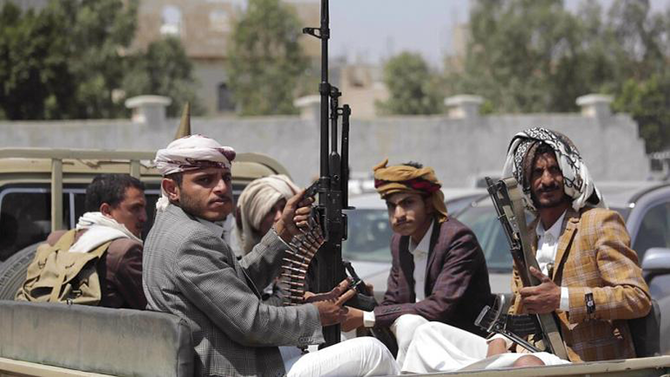- International News
- Mon-2021-08-02 | 10:27 pm

Nayrouz News Agency :
ALEXANDRIA: The Houthis have been accused of torturing hundreds of prisoners to death since taking power in late 2014.
Yemen’s Human Rights Ministry said that 350 prisoners, including 33 women, had died from extreme torture and deliberate medical negligence during the last seven years. It added that the militia was still using the same harsh methods on prisoners in areas under their control.
Activists warned inmates were being subjected to human rights abuses in Houthi-controlled prisons and that they could die if the international community did not intervene.
In a statement seen by Arab News, the ministry said it had documented 1,635 cases of mental and physical torture, deprivation of life-saving medical treatment and execution of prisoners in jails controlled by the Houthis in Sanaa, Hajjah, Thamar and other provinces.
The Mothers of Abductees Association, an umbrella organization for female relatives of war prisoners, said that its figures of the number of deaths inside Houthi prisons were close to the government’s figures.
Amat Al-Salam Al-Hajj, the organization’s chairwoman, told Arab News that 319 had died from torture inside Houthi prisons.
The ministry and rights groups said the latest confirmed victim of Houthi abuse was a prisoner called Mohsen Mohammed Al-Qadhi, who was reportedly executed inside a Thamar prison last week.
The ministry said he was abducted from his home in Dhamar city a year ago. Large bruises on his body indicated the physical torture he had been subjected to.
"This crime is an extension of a series of crimes and grave violations committed by the Houthi militia against the kidnapped and forcibly displaced men, women and children in their detention centers, who are subjected to the worst types of physical and psychological torture,” the ministry said.
Local and international rights groups have demanded independent investigations into the deaths.
The Geneva-based SAM Organization for Rights and Liberties condemned the killing of Al-Qadhi and accused the militia of violating international laws by abusing prisoners.
It disputed the Houthis’ claims that he had died from an unintentional shooting.
Rights Radar, a group established in the Netherlands by Yemeni activists, also called for an independent probe into his death.
Former prisoners and former officials at Houthi-controlled prisons told Arab News that prisoner abuse was rife, saying they had heard stories of many prisoners committing suicide to escape horrific treatment.
Essam Balghaith, a Yemeni journalist who was released from a Houthi jail during a prisoner swap, said torture was widespread and that many inmates tried to kill themselves as they could not bear torture.
"I heard about many cases of suicide attempts by prisoners due to extreme torture,” he told Arab News. "I witnessed the death of a prisoner who was brutally tortured and deprived of medication.”
Ahmed Arman, Yemen’s minister of human rights, urged international rights groups to expose Houthi crimes against prisoners and pressure the rebels to release them.
"The international community and international organizations that work in Yemen must be transparent about Houthi violations and crimes,” he told Arab News.













